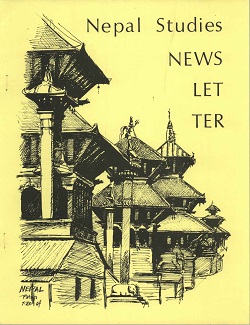Author Biography
Rebecca Klenk (PhD, University of Washington, 1999) is a sociocultural anthropologist. She teaches interdisciplinary courses in gender studies, Asian studies, and global studies at the University of Tennessee. She is the author of several articles and a recent book on gender, development, alternative education and social activism in the Uttarakhand Himalaya.
Abstract
In 1946, Sarala Devi, formerly Catherine Mary Heileman of London, founded a Gandhian training center for women and girls in Kumaon, in what was then the Himalayan region of the United Provinces, India. She and her students challenged conventions regarding gender, sexuality, and appropriate roles for colonial women. This essay analyzes Sarala Devi’s translocal work and shifting subjectivity in the context of her transnational position as she negotiated colonial, modernist, feminist, Gandhian, and village discourses in her mission to “uplift” women. It identifies and analyzes the varied historical contexts, ideologies, and discourses that created the possibility for Sarala Devi’s life and work in the Kumaon Himalaya.
Acknowledgements
Research completed with funding from the American Institute of Indian Studies informs this article, which builds upon the introduction to Sarala Devi offered in the author’s recent book, Educating Activists: Development and Gender in the Making of Modern Gandhians (2010, Lexington Books/ Rowman & Littlefield). As ever, thanks very much to Lakshmi Ashram staff, graduates and students. They patiently taught the author about Sarala Behn over many years, and provided access to fascinating historical materials. The author’s perspective on Sarala Devi has especially benefitted from numerous discussions with David and Hansi Hopkins, Radha Bhatt, Kanti Bhatt and Neema Vaishnava over many years. Hearty thanks as well to David and to Shekhar Pathak of Pahar for permitting the author to use the extensive quotations which appear from David’s translation of Sarala Behn’s Hindi memoir. This piece would have been far less without Daniel Klingensmith’s careful comments, and without insightful anonymous reviewer feedback. Finally, enthusiastic thanks to wonderful long-time colleagues Shubhra Gururani and Kim Berry for including this essay and seeing the special issue through to publication.
Creative Commons License

This work is licensed under a Creative Commons Attribution 4.0 License.
Recommended Citation
Klenk, Rebecca M.. 2014. Gandhi's Other Daughter: Sarala Devi and Lakshmi Ashram. HIMALAYA 34(1).
Available at:
https://digitalcommons.macalester.edu/himalaya/vol34/iss1/14


